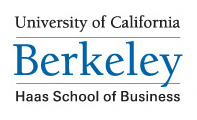Open Innovation and Business Models in India
UGBA 193I -Travel Study Program 3 Units
Spring 2014 (Travel Module: Jan 3-12 in India)
Instructor: Solomon Darwin Class Logistics: MW 4:00pm -5:30pm;
Location: The I-Lab; Office Hours: by appointment
E-mail Address: darwin@haas.berkeley.edu
Prerequisites: None
Research Advisors: Henry Chesbrough and Navi Radjou
uGSI: Denice Sy
uGSI E-mail Address: denicesy@berkeley.edu
Textbooks: Open Business Models: How to Thrive in the New Innovation Landscape by Henry Chesbrough Jugaad
Innovation by Navi Radjou
Course Description:
Students research and study “Open Innovation Business Models” that focus on Frugal Innovations (Jugaad Innovations). These are products and services that are offered at low cost /high quality creating “Value for Many” vs. “Value for Money”, models that are more relevant to majority of the world’s consumers of today and tomorrow. The Jugaad models being innovated in India have the potential to disrupt the high margin business models in the developed world. In addition, they promote greener and more sustainable approaches to preserve our planet in addressing some of the grand challenges.
Many innovations in health care services, telemedicine, medical equipment, solar energy, battery technology, refrigeration, cookery and prosthetics etc. fall into this category. Students will be exposed to models that originate in the emerging economies with a global appeal and eventually impact business models of the developed world.
Why Bangalore?
Bangalore is India’s Silicon Valley, a vibrant innovative hub for all IT/electronics related developments. It attracts a rich pool of professionals, top research centers, and clinical partners. It is also in close proximity to access rural regions where to study several frugal innovations at work in Indian villages.
Student Projects: Business Model Solutions to Emerging Economies.
Hosting companies in Bangalore plan on presenting a business model challenge to Haas Students. This will become the 3 unit project that the students will undertake to earn their credit. Students are free to pick challenges that will interest them during their visit and will work in teams of four. The final project will be presented to a select group of Silicon Valley Executives during the last week of 3rd week of April (date TBD). Last year’s class syllabus is attached for assessment.
Grading:
|
Class Attendance 150 Class Participation 150 Mid‐Term 200 Peer Evaluation 100 Final Project *** 400 Total Points = 1,000 |
Important Policies that will affect your participation grade:
***50 points credit will be issued per group for generating ideas for other groups that will be utilized in their proposed models. 10 point/idea (5 ideas/group) |
Company Visits and Learning Objectives
1) IDIOM in Bangalore (http://www.idiom.co.in/): to discover how crowdsourcing can be used to speed up market research and accelerate innovation. Better understand how an open-source platform called DREAM:IN (http://www.dreamin.in) developed by IDIOM is being used to encourage the youth in India, Brazil, China, USA to collaboratively find solutions to socio-problems facing their societies
2) SELCO in Bangalore (http://www.selco-india.com): to discover how SELCO, a solar energy system provider, is using an open innovation model to distribute and maintain its solar lanterns to 200,000 rural households in the remotest villages of India — by leveraging a grassroots network of “micro-entrepreneurs”
3) GE Healthcare in Bangalore: to discover how a multinational is leveraging open innovation partnerships with entrepreneurs and midsize companies to bring quality healthcare (especially cancer treatment) at affordable prices to more Indians. MIT-SMR article: http://sloanreview.mit.edu/article/mobilizing-for-growth-in-emerging-markets/
4) Xerox‘s R&D Lab in Bangalore: to learn how a multinational has built strong ties with local universities (IITs) and startups in India to co-create innovative solutions for India and global markets. HBR case study on Xerox-India (attached) 5) The Philips innovation campus in Bangalore: to learn how Philip leverages local talent and the surrounding eco-system. http://www.research.philips.com/locations/bangalore.html
6) IBM Research in Bangalore: to study IBM has come up with an impressive list of achievements, including innovations in service delivery such as customer analytics, workforce management and global delivery management and solving unique challenges in emerging markets such as spoken web, cleansing of noisy data, and scalable analytics platforms for the telecom industry. http://www.research.ibm.com/labs/india/index.shtml
7) SAP Labs Bangalore: to learn how an MNE like SAP India is empowered to be a strong proponent of Sustainability and Social Responsibility. Project Lakshya which aims to educate 100,000 children from underprivileged background in 2011 through 35 computer labs spread across the country is already underway. Another project by SAP Labs volunteers, in collaboration with the Autism Society of India, is to train autistic children using iPad applications. A team of four employees from SAP Labs India has won the HANA Olympics, a competition to develop the best applications on HANA, from amongst 623 teams participating worldwide, on May 2011 at SAPPHIRE Now, a premier technology event organized by SAP, testifying to the innovation culture at Labs India. http://global12.sap.com/india/about-sap/index.epx
8) Apollo Hospitals: to learn how telemedicine works in rural outreach. Students travel to Chitoor – a tribal area to study traditional medical care solutions in villages and the impact of telemedicine. http://www.apollohospitalsbangalore.com/
9) Understanding the Resource Constrains in Emerging Economies: This is a mutual learning exercise about identifying and working around constraints. “Taking Ideas to Market in an Emerging Economy” Haas Students will engage with selected entrepreneurial high school students in a Business Model Workshop.
Mandatory Daily Briefing Meetings with Prof. Darwin during Travel Days Jan 3rd – 12th
- 7:00am- 8am: Team Debriefing Sessions during breakfast at the Hotel
- 7pm – 8:30pm: Reflections and learning session with Prof. Darwin following dinner at the Hotel unless traveling remotely.
